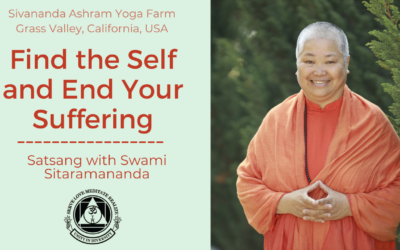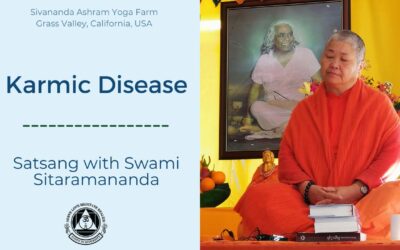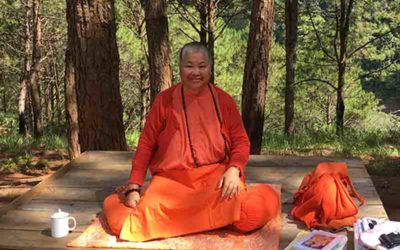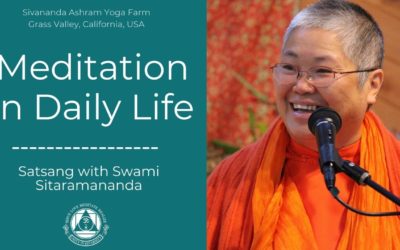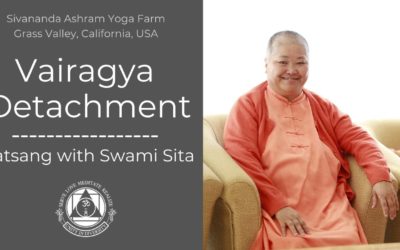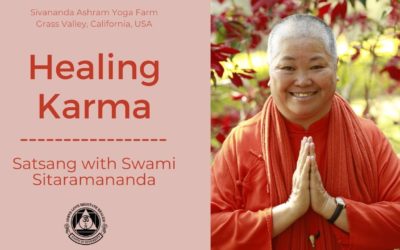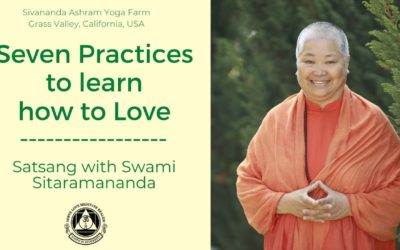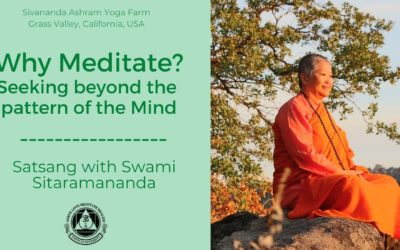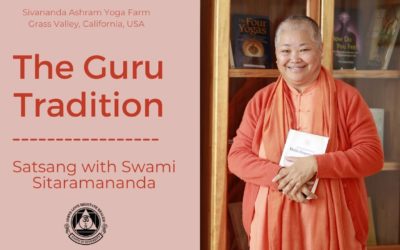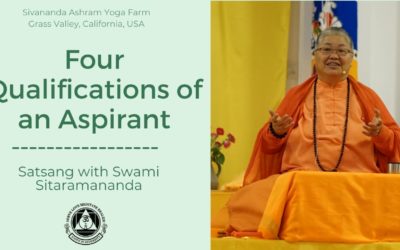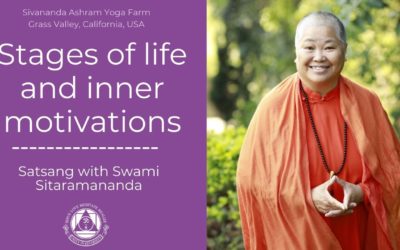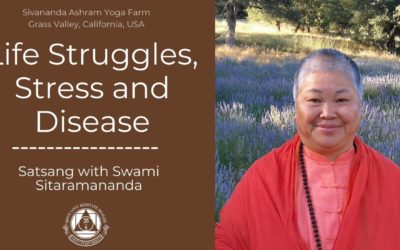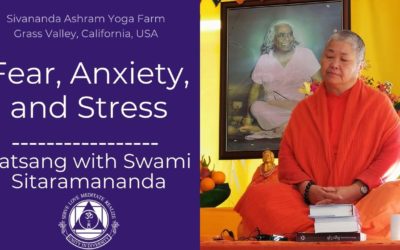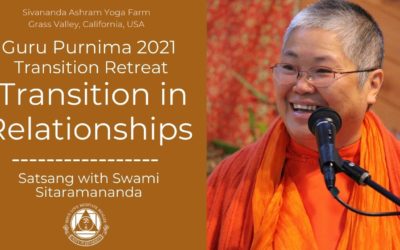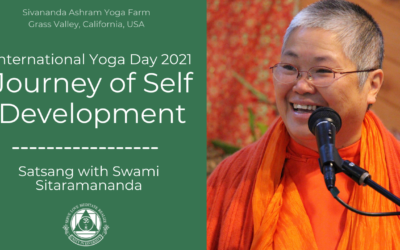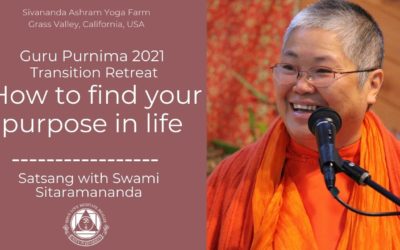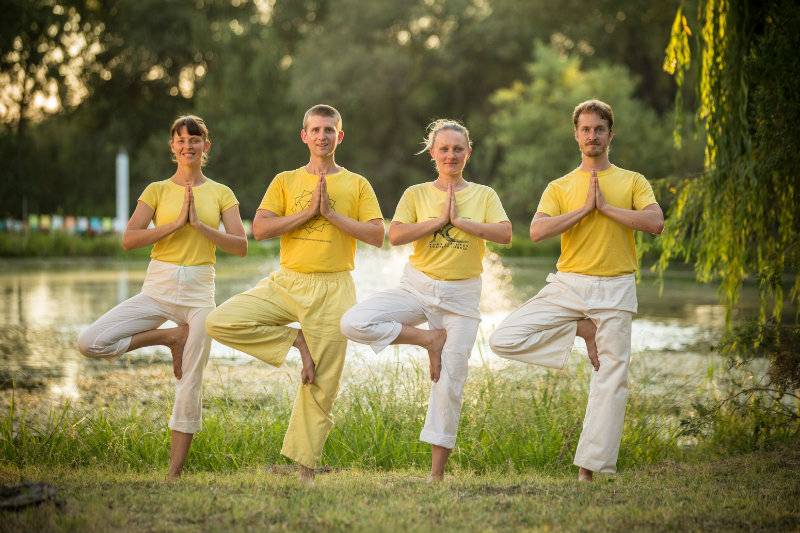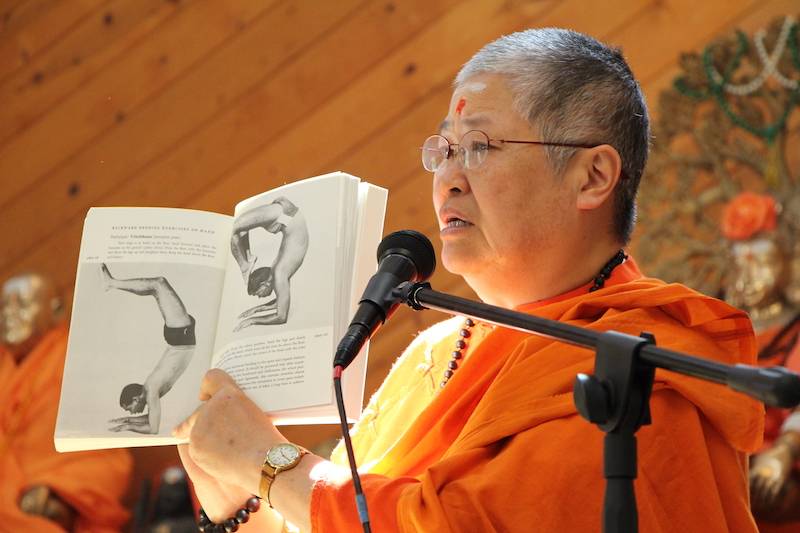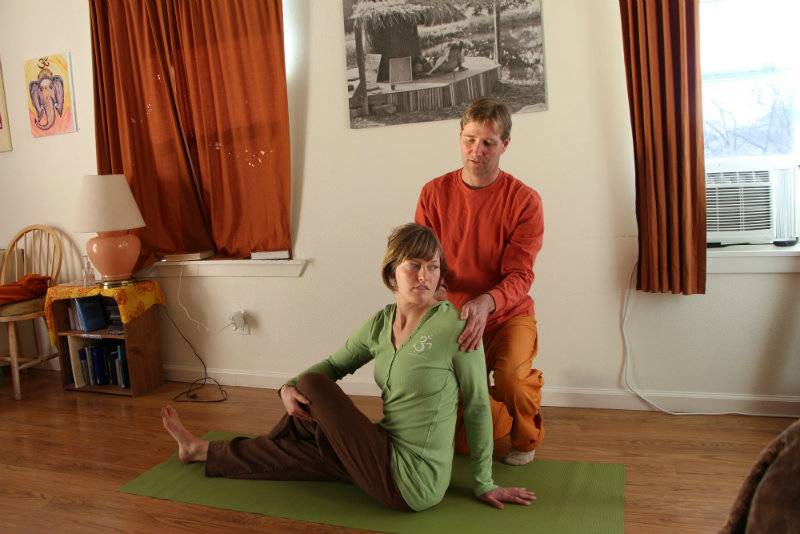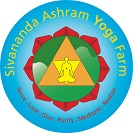
Sivananda Yoga Farm Blog
4 Paths of YogaThe 4 yoga paths
For the integral development of body, mind and soul, yoga recommends combining the following four main practices:
Karma Yoga
Karma Yoga is the path of action and suits people with active temperaments. Performing actions selflessly – without thinking of success or reward – purifies the heart and reduces the ego. Karma Yoga is the best way to prepare oneself for silent meditation.
Bhakti Yoga
Bhakti Yoga is the yoga of devotion and is perfect for people who are emotional by nature. Through prayer, worship and ritual, one comes to see the Divine as the embodiment of love. Chanting mantras is an essential part of Bhakti Yoga.
Universal Prayer>>
Jnana Yoga
Jnana Yoga is the yoga of wisdom or knowledge is most suitable for intellectual people. The philosophy of Vedanta teaches analytical self-enquiry into one’s own true nature, with the goal of recognising the Supreme Self in oneself and in all beings.
Raja Yoga
Raja Yoga is the science of controlling body and mind. The asanas (body postures) and pranayamas (breathing exercises) from Hatha Yoga are an integral part of this yoga path. The main practice of Raja Yoga is silent meditation, where bodily and mental energies are gradually transformed into spiritual energy.
Find the Self and End Your Suffering
Does our suffering have any use to us? And where does suffering come from? According to the Raja Sutras, all of our suffering comes from five main sources. They are ignorance, pleasure, aversion, the ego, and the fear of death. When we begin to investigate...
Karmic Disease
Today we have a very serious topic, the topic of Karmic Disease. So, you know, people have diseases and sometimes it’s not explainable. We don’t understand why they have the diseases. So, first you need to understand the meaning of the word karma. Karma means simply the universal law of cause and effect, action and reaction. The word Karma means action, and karma applies to physical action, but also to mental action. I mean, you don’t do anything, but you think about it. And when you think about it, you create the mental karma, and the reason why we are born in this particular condition is because of our karma. So, there is no accident that we are born in a certain family in certain circumstances, a certain country and our life goes a certain way.
Health & Disease
Diseases do not happen like right away, let’s say you are angry, you are resentful, it stays in the system for a long time; resentment is like rust, slowly, slowly it eats your body as it eats your mind; so then slowly slowly, after ten years of resentment, you develop some kind of problem, for example, problems on the liver, arthritis problem. Any physical health problem always has some kind of equivalence in the mind. If you are grieving, for example, you were crying, or you never really recovered for years, then you might one day have a problem with the lungs.
HOW TO MEDITATE IN DAILY LIFE
There are different definitions of meditation. One of the definitions, the classical way, is the definition according to Patanjali. According to Patanjali, meditation is at the seventh rung. That means seventh step of the eight steps ladder of yoga, a Raja Yoga system. That means you have to prepare yourself, in order for you to be able to be still. Yamas and niyamas are the two first rungs in Taja Yoga, guiding you to have proper behavior that will not bring about any kind of reaction, that will bring about peace.
Vairagya – Detachment or Dispassion
The topic of today is an important topic, a philosophical topic. It is the topic of detachment. Those who study Vedanta in the TTC, you know that it is part of the practice of Vedanta to learn to detach so that your mind and heart are not so involved in everything that is temporary. You remain yourself.
HEALING KARMA: Our karmic tendencies and how to work it out
Karma is action and consequence of action. It Implies that we are born as consequence of past action and thought. Action comes also in terms of thoughts. This life has a cause and what we do in this life will have a consequence in the future. So, we have to see the big picture to understand your life at the present. There is a reason for certain things to happen that way, and there is a way you can then get out of it, alleviating it.
Seven Practices to learn how to Love
Love is selfless and unconditional. Conditional love is selfish and emotional. Emotions need to be purified to become pure love. Emotions come from our lower mind and our subconscious mind which carries impressions of the past. Yoga teaches us to purify the usual, habitual, tainted love, in other words, our lower mind and to activate our higher mind.
Why Meditate? Seeking beyond the Pattern of the Mind
You need to understand why we meditate, then you can practice meditation for a long time and more seriously. The reason why we meditate, or we do yoga, is because in classical yoga, and yoga means meditation – meditation means yoga, there’s no separate thing. People think yoga means we’re doing some exercise and going to meditation is Zen meditation, or vipassana meditation or something separate. However, In the ashram, everything we do is included in the word meditation, and everything is preparation for meditation. Everything is meditation, everything is preparing you for meditation.
The Guru Tradition
The guru tradition is very old, before the time of Adi Shankaracharya (eighth century). Adi Shankaracharya himself was enlightened. When he was just six years old, he knew all the Vedas. When he was only nine years old, Adi Shankaracharya received permission from his mother to take sannyasa, the renunciation phase of life.
Four Qualifications of an Aspirant
We are used to seeking outside for pleasures and happiness that are in the sensual world and that are temporary. If something does not happen the way we want, we are disappointed; we blame something or somebody. The reason for our disappointment is always external to us, in the external world.
STAGES OF LIFE & INNER MOTIVATIONS
The ancient teaching of the Vedas have given you some guidance. And of course, you need to have a teacher who knows you very well, who can tell you (more or less) where you are at, and what are the different steps that you need to take. Today I’m going to present to you a little bit of these different ideas to guide you.
Life struggles, stress and disease
Today we talk about life struggles and about the relationship between life struggles and stress, what is stress, and the relationship between stress and disease so we become aware of what we are doing. The most important thing we need to remember, Swami Sivananda said that life is a struggle. If you cease to struggle, you cease life. We are equipped with all the tools in order for us to lead our life.
Fear, Anxiety, and Stress
Some countries are experiencing the COVID situation, they are in lockdown. In some other countries, like in the US, it’s not currently locked down, but still the increase of COVID cases is very big and there is a different situation that creates anxiety and fear.
Transition in Relationships
Today we continue the topic of the Yoga of Relationships and how to handle transition. How do we manage our relationships? We said yesterday that everything just flows from one thing to another. Life is in transition at all times. Life is a flow. We just need to follow the flow in its many different aspects. One of the aspects is relationships, human relationships.
Journey of Self Development
To practice yoga is to feel that we are progressing. It’s not nice to feel stuck in life. If you feel that things are not moving and you are stagnant, the best way is to practice. Go back to your yoga mat, to your meditation cushion, to your diary, to your journal and try to renew your practice. What does it mean to practice? What to practice? And how do you develop yourself and not feel stuck?
How to find your purpose in life
The topic of today morning is about how to find your goal and your purpose in this life. Very often we find ourselves in transition, asking ourselves questions “What I’m going to do? What’s my next step? I like this, I like that, but I like this too. I don’t really know what to do”. Often times, we find ourselves in mild or severe depression, due to the sense of lack of direction and a feeling of meaninglessness. This is when we need to know about what our Dharma is.
Follow us
[et_social_follow icon_style=”slide” icon_shape=”rounded” icons_location=”top” col_number=”2″ counts=”true” counts_num=”0″ outer_color=”dark”]Subscribe to the Yoga Farm Newsletter for regular updates, articles, and upcoming events.
